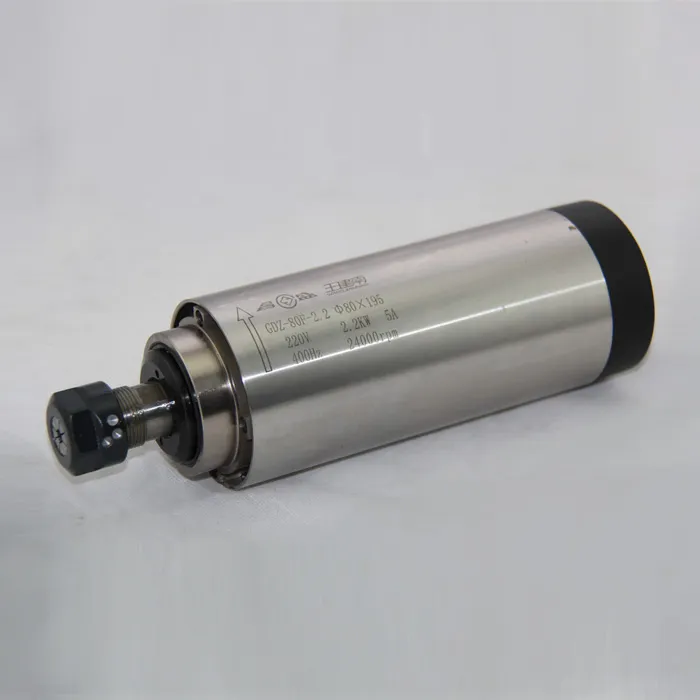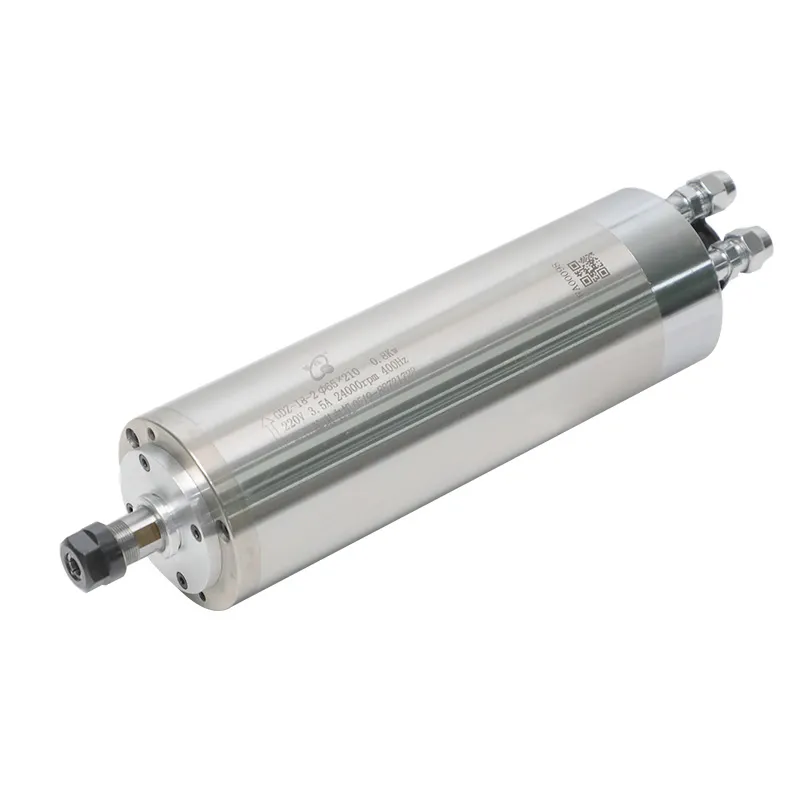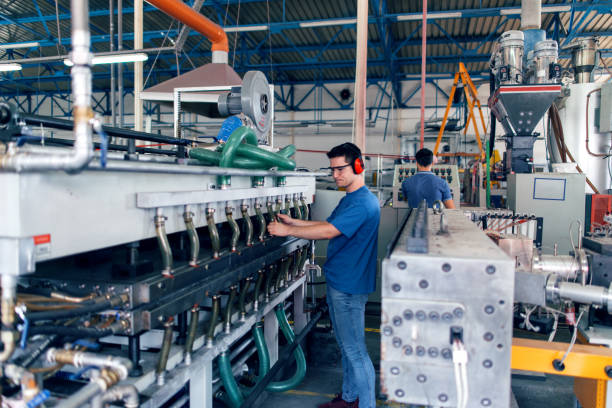The field of CNC machining offers incredible opportunities for those interested in manufacturing and precision engineering. Whether you are just starting your career or looking to improve your existing skills, becoming CNC certified can set you apart in this competitive industry. This certification showcases your abilities to employers, giving you a significant edge in the job market. If you’re wondering how to become CNC certified, this comprehensive guide will walk you through every step you need to take, from skills required to certification programs and career prospects. Let’s dive into the details.
What is CNC Certification?
Understanding CNC Certification
CNC Certification is a credential that validates your expertise in operating Computer Numerical Control (CNC) machines. CNC machines are used to manufacture precision parts for a variety of industries, including automotive, aerospace, and medical devices. Certification programs are often developed by recognized industry organizations and provide structured training that ensures you are fully capable of programming, setting up, and operating CNC machinery.
CNC certification is typically achieved through a combination of formal education, practical training, and exams. This certification can range from beginner to advanced levels, depending on the complexity of skills demonstrated.
Benefits of Becoming CNC Certified
- Industry Recognition: Employers see certified machinists as more competent and reliable.
- Increased Employability: CNC certification increases job opportunities and makes you more competitive.
- Better Salary Prospects: Certified CNC machinists often command higher wages.
- Skill Development: Certification programs provide comprehensive training, ensuring you learn the full spectrum of CNC operations.
The Role of a CNC Machinist
What Does a CNC Machinist Do?
A CNC machinist is responsible for setting up, programming, and operating CNC machines. These machines use computerized tools to cut, shape, and finish materials like metal, plastic, and wood to produce precision parts. Key responsibilities of a CNC machinist include:
- Reading Blueprints: Understanding technical diagrams to accurately produce parts.
- Programming CNC Machines: Entering G-code commands into the machine’s control unit.
- Setup and Calibration: Setting up tools, adjusting speeds, and ensuring everything is ready for production.
- Quality Control: Ensuring each part produced meets the required specifications.
Skills and Traits of a Successful CNC Machinist
To excel in CNC machining, you need a combination of technical skills and personal attributes. These include:
- Mechanical Aptitude: Understanding how different parts and tools work together.
- Attention to Detail: CNC machining requires precision, so noticing small deviations is crucial.
- Problem-Solving: Troubleshooting issues when machines fail or when parts don’t meet specifications.
- Patience and Perseverance: Setting up a CNC machine and running it properly takes time and careful adjustments.
Steps to Becoming CNC Certified
1. High School Education
The journey to CNC certification often begins with a high school diploma or GED. Subjects like mathematics, physics, and shop class provide a foundation that will be invaluable for future machinists. Basic geometry and algebra skills are particularly useful because they help with measurements and calculations required in CNC machining.
2. Enroll in a Trade School or Community College Program
Many aspiring CNC machinists attend trade schools or community colleges that offer courses in CNC machining and manufacturing technology. These programs cover the basics, such as reading blueprints, safety practices, and programming CNC machines using software like Mastercam or Fusion 360.
3. Complete an Apprenticeship Program
Apprenticeships are a fantastic way to get hands-on experience while earning a wage. During an apprenticeship, you’ll work under the guidance of an experienced CNC machinist. These programs typically last 2-4 years and provide in-depth exposure to machine operations, G-code programming, and maintenance procedures.

To ensure precision in your training, high-quality spindles like our 2.2KW ER20 Air-Cooled Spindle can make a significant difference.
4. Choose the Right CNC Certification Program
There are several types of CNC certification programs available. Choosing the right one depends on your current skill level and career aspirations. Here are some popular certifications:
- NIMS Certification: The National Institute for Metalworking Skills (NIMS) offers certification that covers various levels of CNC machining, from beginner to advanced.
- HAAS CNC Certification: Offered by HAAS Automation, this program is ideal for operators working with HAAS machines.
- Community College Certifications: Many community colleges offer certification programs tailored to their courses.
5. Take and Pass the Certification Exam
Once you’ve completed your formal training or apprenticeship, the next step is to take the certification exam. The exam typically includes both written tests and practical demonstrations. The goal is to verify your ability to program CNC machines, make adjustments, and safely operate equipment.
Types of CNC Certifications
1. NIMS CNC Certification
NIMS is one of the most recognized certification bodies for CNC machinists in the United States. It offers certifications in areas like milling, turning, and multi-axis machining. NIMS certification is an industry standard and can significantly improve your career prospects.
| Certification Level | Skills Validated |
|---|---|
| Entry-Level | CNC Setup, Operation, Basic Programming |
| Intermediate | Advanced Setup, Troubleshooting, Quality Control |
| Advanced | Multi-Axis CNC, CAD/CAM Programming |
2. HAAS CNC Certification
HAAS offers a specialized certification program that focuses on HAAS CNC machines. This program is particularly beneficial for those planning to work in shops that use HAAS equipment.
3. Fanuc CNC Certification
Fanuc is another popular CNC certification. This program covers the use of Fanuc controllers, which are common in many industrial CNC machines.
Benefits of Becoming a CNC Machinist
1. High Demand and Job Stability
With industries like aerospace, automotive, and construction relying heavily on CNC machining, there is always a demand for skilled CNC machinists. This career offers job stability, with numerous opportunities to advance as you gain experience.
2. Competitive Salary
The average salary for a CNC machinist ranges between $40,000 and $60,000 per year, with experienced machinists earning more. Certifications and specialization in certain CNC types can further increase earning potential.
3. Career Advancement Opportunities
Becoming CNC certified doesn’t just open doors to operator positions. With the right experience and certification, you could advance to roles like CNC programmer, shop supervisor, or even manufacturing engineer.
Preparing for CNC Certification Exams
Study Materials and Resources
The first step to prepare for a CNC certification exam is to gather the right study materials. Many certification bodies, like NIMS, provide exam guides and practice tests to help candidates prepare.
Key Areas to Focus On
- Blueprint Reading: Understanding technical drawings is essential.
- G-code and M-code Programming: Practice writing and interpreting these machine codes.
- Mathematics: Geometry, trigonometry, and algebra are often tested in exams.
- Hands-On Practice: Many certification exams require practical demonstrations of your skills on a CNC machine.

Using advanced tools like our 24000RPM 0.8KW ER11 Water-Cooled Spindle can give you practical insights into high-precision machining.
Finding CNC Certification Programs
Trade Schools and Community Colleges
Most trade schools and community colleges offer CNC certification programs as part of their curriculum. Programs can range from a few months to two years, depending on the level of training provided.
Online Courses
Several platforms offer online CNC courses that provide flexibility if you’re working full-time. Platforms like Udemy, Coursera, and edX offer beginner and intermediate courses that can help prepare you for certification exams.
Apprenticeships and Employer Programs
Some employers sponsor in-house certification programs or partner with local institutions to provide training for their employees. These programs often include classroom instruction coupled with practical machine time.
Tools and Resources for CNC Certification
CNC Simulation Software
CNC simulation software allows you to practice programming and see how your commands would affect a machine in real-time, without the risk of damaging any equipment. Software like CNC Simulator Pro or Fusion 360 is a great way to practice before taking your certification exams.
CNC Tooling and Equipment
Practical experience is an essential part of CNC certification. Using high-quality CNC tools is vital to understand the nuances of different materials and cutting techniques. Consider tools like our 24000RPM 1.5KW ER16 Water-Cooled Spindle for hands-on practice.
How to Maintain CNC Certification
Continuing Education
To stay current in the field of CNC machining, it’s essential to engage in continuing education. Many certification programs require you to renew your certification every 2-4 years, depending on the certifying body. Renewal may involve taking updated exams or completing specific continuing education courses.
Attending Workshops and Seminars
Many industry organizations offer workshops and seminars to help machinists stay up-to-date with the latest developments in CNC technology. These sessions provide valuable information about new tools, techniques, and safety protocols.
Challenges in Becoming CNC Certified
Complexity of Learning G-Code
One of the most challenging aspects of CNC certification is learning G-code and M-code programming. These are the languages used to communicate with CNC machines, and they require a good understanding of mathematics and machine behavior.
Cost of Certification Programs
While certification is a great way to boost your career, it can be costly. Tuition for trade school programs, exams, and the cost of study materials can add up. However, the investment pays off in the long term with better job opportunities and higher wages.
FAQs
1. What is the best certification for CNC machinists?
The NIMS Certification is one of the most recognized and respected certifications for CNC machinists in the United States. It covers multiple levels of skills, from entry-level to advanced.
2. How long does it take to get CNC certified?
It typically takes between 6 months and 2 years to get CNC certified, depending on the program type and whether you are studying full-time or part-time.
3. Can I get CNC certified online?
Yes, several online platforms offer CNC courses that can prepare you for certification. However, most certification exams require in-person, hands-on testing.
4. How much does CNC certification cost?
The cost of CNC certification varies. Trade school programs may cost between $1,000 and $10,000, while certification exams themselves are typically between $150 and $300.
5. Is CNC certification worth it?
Yes, becoming CNC certified can significantly improve your job prospects, allow you to command higher wages, and open doors to advanced positions within the manufacturing industry.
Conclusion
Becoming CNC certified is a smart career move for anyone looking to enter or advance in the CNC machining field. The certification process involves a combination of formal education, hands-on training, and exams that prove your competency in programming, setting up, and operating CNC machines. While the path to certification can be challenging, the rewards include increased job security, better wages, and greater career advancement opportunities.
To maximize your success, make sure to invest in high-quality CNC tools, such as our 2.2KW ER20 Air-Cooled Spindle, which can help you practice your skills effectively. By taking the time to become CNC certified, you’re not only enhancing your skills but also setting yourself up for a stable and rewarding career in manufacturing.

